February 26 stands as one of history’s most eventful days, witnessing the rise and fall of empires, groundbreaking discoveries, and moments that shaped our modern world across centuries of human achievement.

Politics and Government Events on February 26
1919 – Grand Canyon National Park Established

President Woodrow Wilson signed groundbreaking legislation establishing Grand Canyon National Park in Arizona. This monumental decision protected one of America’s most spectacular natural wonders for future generations.
The park’s creation marked a significant victory for early conservation advocates. Wilson’s signature transformed the canyon from a national monument into a fully protected national park with enhanced federal oversight.
1952 – First Canadian-Born Governor General Sworn In
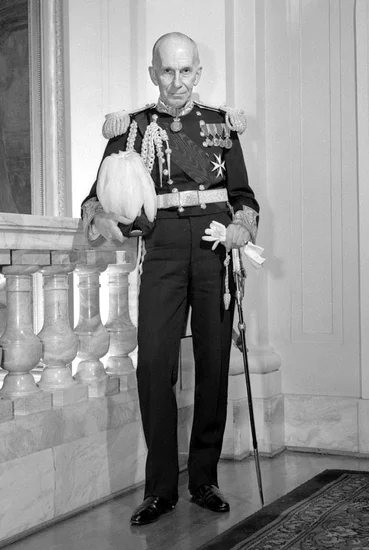
Vincent Massey made history by becoming Canada’s first Canadian-born Governor General, breaking centuries of British tradition. His appointment symbolized Canada’s growing independence from colonial governance structures.
Massey’s swearing-in ceremony marked a pivotal moment in Canadian sovereignty. The appointment demonstrated the nation’s confidence in its own citizens to hold the highest ceremonial office.
1980 – Egypt and Israel Establish Full Diplomatic Relations

Egypt and Israel officially established complete diplomatic relations, cementing the peace process initiated at Camp David. This historic agreement transformed Middle Eastern politics and ended decades of warfare between the nations.
The diplomatic breakthrough opened new possibilities for regional cooperation and economic development. Both countries appointed ambassadors and began normalizing trade relationships across multiple sectors.
1987 – Tower Commission Rebukes President Reagan
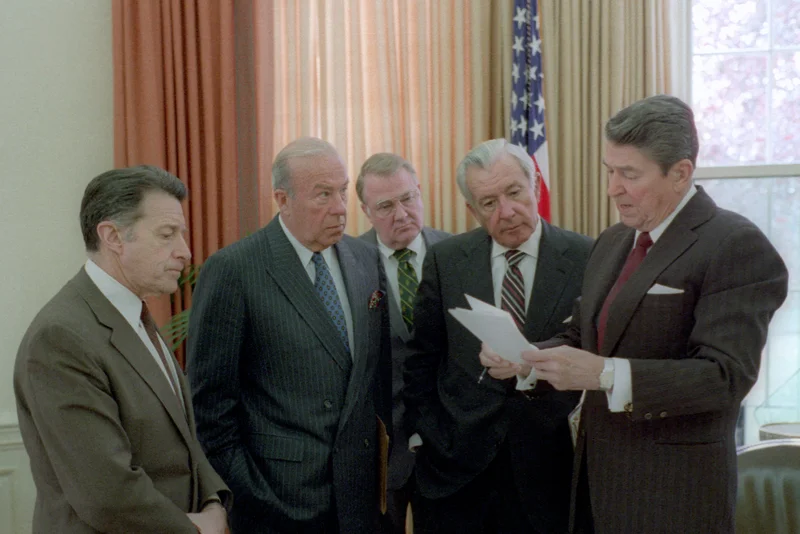
The Tower Commission issued a scathing report criticizing President Ronald Reagan’s handling of the Iran-Contra affair. The commission found Reagan had failed to adequately control his national security staff’s illegal activities.
The report damaged Reagan’s reputation and highlighted serious flaws in executive branch oversight. Congressional hearings followed, leading to multiple prosecutions and reforms in intelligence operations.
Military and Naval History on February 26
1935 – Hitler Orders Luftwaffe Formation

Adolf Hitler brazenly ordered the reformation of the German Air Force, directly violating Treaty of Versailles provisions. This aggressive move marked Nazi Germany’s open defiance of international agreements and post-war restrictions.
The Luftwaffe’s creation signaled Germany’s preparation for future military expansion across Europe. Allied nations watched nervously as Hitler dismantled the peace treaty’s military limitations.
1936 – February 26 Incident in Tokyo
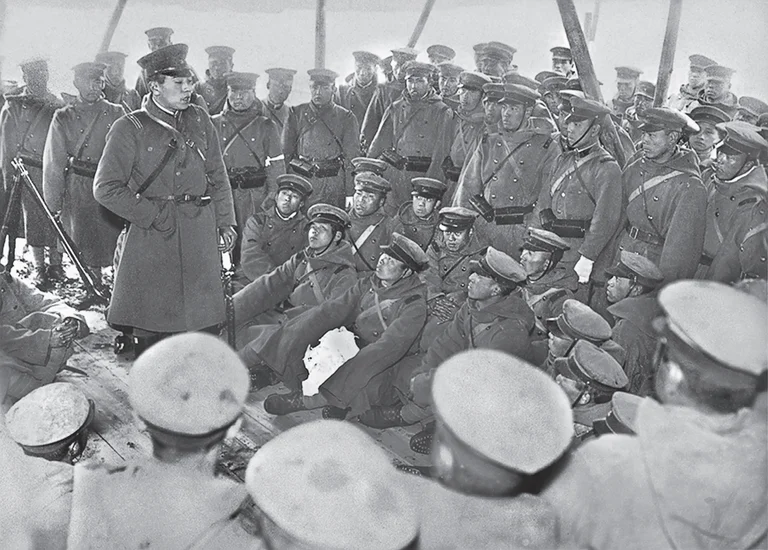
Young Japanese nationalist military officers assassinated multiple cabinet members and launched a three-day rebellion in downtown Tokyo. The coup attempt sought to eliminate moderate politicians and establish direct military rule.
Government forces eventually crushed the rebellion, but the incident accelerated Japan’s slide toward militarism. The failed coup strengthened radical elements within the military establishment.
1945 – US Troops Reclaim Corregidor
American forces successfully recaptured the strategic Philippine island of Corregidor from Japanese occupation during World War II. The victory marked a crucial step in the liberation of the Philippines.
The assault involved coordinated airborne and amphibious operations against heavily fortified Japanese positions. Corregidor’s recapture opened Manila Bay to Allied shipping and naval operations.
2019 – Indian Air Force Strikes Terrorist Camps
Indian Air Force fighter jets targeted Jaish-e-Mohammed terrorist training facilities in Balakot, Pakistan. The precision strikes represented India’s response to recent terrorist attacks on its territory.
The military operation escalated tensions between the nuclear-armed neighbors significantly. Both nations mobilized additional forces along their disputed border regions.
Science and Discovery Milestones on February 26
1935 – Radar Development Demonstration

Robert Watson-Watt conducted a crucial demonstration near Daventry that directly led to radar development in Britain. His experiments proved radio waves could detect and track aircraft at significant distances.
The breakthrough revolutionized air defense capabilities and changed modern warfare forever. Watson-Watt’s radar technology provided Britain with essential early warning systems during World War II.
1966 – Apollo Program Saturn IB Launch
NASA launched AS-201, marking the inaugural flight of the powerful Saturn IB rocket system. This unmanned test flight validated critical Apollo program technologies and spacecraft systems.
The successful launch demonstrated the rocket’s capability to propel Apollo command modules into Earth orbit. Engineers gathered vital data about heat shield performance and spacecraft reentry systems.
1971 – United Nations Proclaims Earth Day
UN Secretary-General U Thant signed the official proclamation establishing the vernal equinox as Earth Day. This declaration emphasized international cooperation in environmental protection and awareness.
The UN’s endorsement gave the environmental movement global legitimacy and institutional support. Earth Day celebrations would eventually engage millions of people worldwide in conservation efforts.
Cultural and Arts Events on February 26
1909 – Kinemacolor Debuts in London
Kinemacolor, the world’s first successful color motion picture process, premiered before London audiences at the prestigious Palace Theatre. This revolutionary technology transformed cinema from black-and-white to vibrant color presentations.
The groundbreaking demonstration captivated viewers and launched the era of color filmmaking. Kinemacolor’s success inspired further innovations in motion picture technology and artistic expression.
2008 – New York Philharmonic Performs in Pyongyang
The New York Philharmonic delivered a historic performance in Pyongyang, North Korea, marking unprecedented cultural diplomacy. This extraordinary concert represented the first major Western cultural event in the isolated nation.
The performance attracted international attention and demonstrated music’s power to transcend political boundaries. Both American and North Korean officials attended this remarkable cultural exchange.
Religious and Social Events on February 26
1992 – Khojaly Massacre Occurs
Armenian armed forces opened fire on Azerbaijani civilians near Khojaly during the First Nagorno-Karabakh War, killing hundreds. This tragic event became one of the conflict’s most devastating incidents.
The massacre intensified ethnic tensions and deepened the regional conflict significantly. International human rights organizations condemned the attacks and called for accountability.
2021 – Nigerian Students Kidnapped
Bandits kidnapped 279 female students aged 10-17 from a school in Zamfara State, Nigeria. The mass abduction shocked the international community and highlighted Nigeria’s ongoing security challenges.
The kidnapping sparked nationwide protests demanding improved school security and government action. International organizations offered assistance in rescue efforts and negotiations.
Business and Economic Events on February 26
1995 – Barings Bank Collapses

Britain’s oldest investment bank, Barings Bank, collapsed after rogue trader Nick Leeson lost $1.4 billion speculating on Singapore futures markets. The spectacular failure shocked the global financial community.
Leeson’s unauthorized trading activities went undetected for months, exposing serious weaknesses in banking oversight. The collapse led to stricter regulations and improved risk management systems worldwide.
1929 – Grand Teton National Park Established

President Calvin Coolidge signed legislation creating Grand Teton National Park in Wyoming, protecting 96,000 acres of pristine wilderness. The park’s establishment preserved spectacular mountain landscapes and wildlife habitats.
The designation promoted tourism development and economic opportunities for local communities. Grand Teton joined Yellowstone as a cornerstone of America’s national park system.
Transportation and Infrastructure on February 26
1914 – HMHS Britannic Launched
The HMHS Britannic, sister ship to the ill-fated RMS Titanic, was launched at Harland and Wolff shipyard in Belfast. This massive vessel incorporated improved safety features following the Titanic disaster.
The ship’s launch represented advances in maritime engineering and passenger safety systems. Britannic would later serve as a hospital ship during World War I.
1979 – Amtrak Superliner Enters Service

The innovative Superliner double-decker railcar began revenue service with Amtrak, revolutionizing American passenger rail travel. These spacious cars provided enhanced comfort and capacity for long-distance routes.
The Superliner’s introduction marked Amtrak’s commitment to modernizing passenger rail service nationwide. The cars featured improved amenities and panoramic viewing capabilities for travelers.
2012 – Burlington Train Derailment
A passenger train derailed in Burlington, Ontario, killing three people and injuring 45 others. The tragic accident prompted investigations into railway safety procedures and infrastructure maintenance.
Emergency responders worked quickly to rescue trapped passengers and provide medical assistance. The derailment led to enhanced safety protocols and equipment inspections.
Sports and Recreation on February 26
2012 – Trayvon Martin Shooting
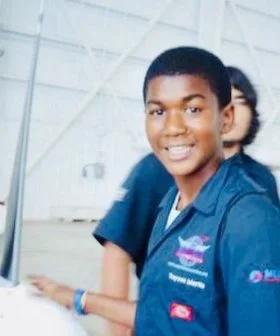
Seventeen-year-old Trayvon Martin was fatally shot by neighborhood watch coordinator George Zimmerman in Sanford, Florida. The controversial incident sparked nationwide debates about racial profiling and self-defense laws.
The shooting triggered massive protests and the Black Lives Matter movement’s emergence. Legal proceedings and social activism continued for years following the tragedy.
2022 – Hot Air Balloon Crash in Egypt
A hot air balloon crashed near Luxor, Egypt, killing 19 tourists and crew members. The tragic accident highlighted safety concerns in Egypt’s popular tourist balloon industry.
Investigators examined weather conditions and equipment failures that may have contributed to the crash. The incident prompted stricter regulations for aerial tourism operations.
Notable Births on February 26
1903 – Giulio Natta Born
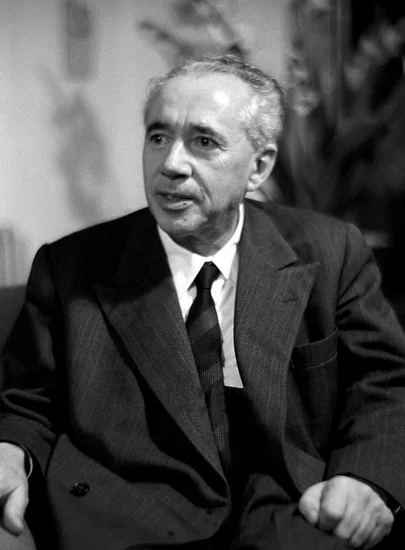
Italian chemist Giulio Natta entered the world, destined to win the Nobel Prize for groundbreaking polymer research. His childhood in Imperia fostered an early fascination with chemical processes.
Natta’s revolutionary work on stereoregular polymers transformed industrial chemistry and materials science. His discoveries enabled the development of countless modern plastic products.
1916 – Jackie Gleason Born
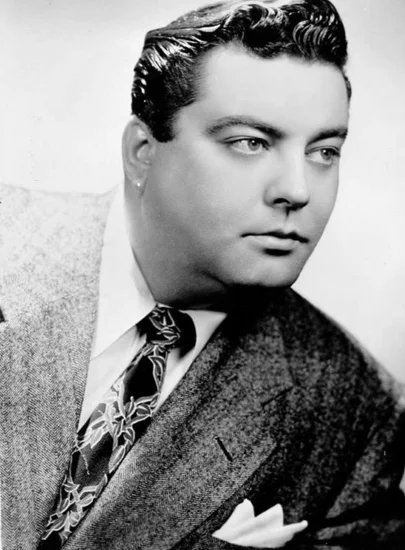
American entertainment legend Jackie Gleason was born in Brooklyn, New York, beginning a journey toward comedy stardom. His difficult childhood shaped his later comedic sensibilities and performances.
Gleason would become beloved as Ralph Kramden in “The Honeymooners” television series. His larger-than-life personality and comedic timing made him an American cultural icon.
1928 – Fats Domino Born

Rock and roll pioneer Fats Domino was born in New Orleans, Louisiana, bringing rhythm and blues to mainstream America. His distinctive piano style and warm vocals defined early rock music.
Domino’s hits like “Blueberry Hill” and “Ain’t That a Shame” crossed racial barriers in 1950s America. His influence on popular music continues to inspire musicians worldwide.
1935 – Johnny Cash Born
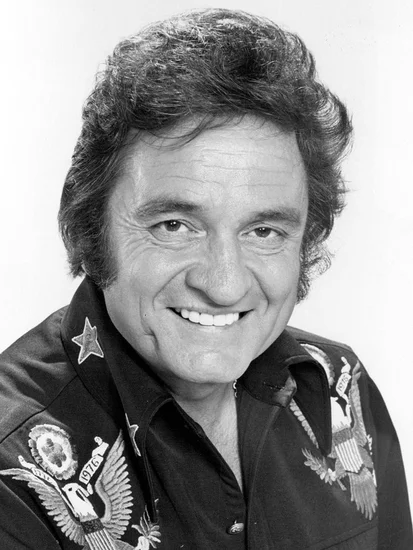
Country music legend Johnny Cash was born in Arkansas, beginning a legendary career that would span decades. His impoverished childhood instilled the authenticity that characterized his music.
Cash’s deep voice and rebellious spirit made him the “Man in Black” of country music. His songs about redemption and hardship resonated with audiences across all demographics.
1931 – Ariel Sharon Born
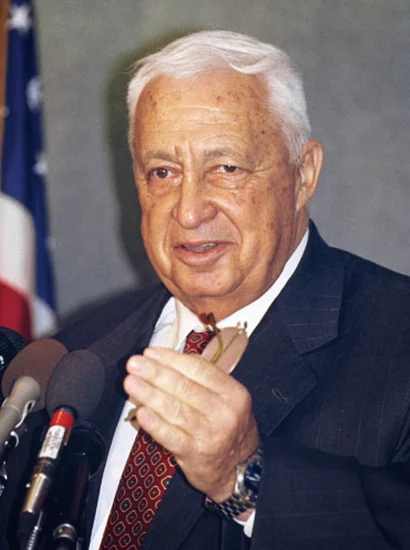
Future Israeli Prime Minister Ariel Sharon was born in Kfar Malal, Palestine, during the British Mandate period. His early life on a moshav shaped his deep connection to the land.
Sharon would become one of Israel’s most controversial and influential military and political leaders. His career spanned from founding the nation through decades of conflict and diplomacy.
1950 – Helen Clark Born

New Zealand’s future Prime Minister Helen Clark was born in Hamilton, beginning a distinguished political career. Her academic achievements and leadership skills emerged during her university years.
Clark would become New Zealand’s longest-serving elected female head of government. Her progressive policies and international diplomacy enhanced New Zealand’s global standing.
1966 – Recep Tayyip Erdoğan Born
Turkish President Recep Tayyip Erdoğan was born in Istanbul, beginning a transformative political journey. His youth in the city’s working-class neighborhoods influenced his populist political style.
Erdoğan would rise from mayor of Istanbul to become Turkey’s most powerful leader in decades. His presidency has fundamentally reshaped Turkish politics and society.
Notable Deaths on February 26
1903 – Richard Jordan Gatling Dies

American inventor Richard Jordan Gatling died, leaving behind his revolutionary machine gun design that changed warfare forever. His mechanical innovations had transformed military technology and tactics.
Gatling’s rapid-fire weapon became a symbol of industrial age warfare’s devastating potential. His invention influenced military strategy and international relations for generations.
1961 – Mohammed V of Morocco Dies

King Mohammed V of Morocco passed away, ending his crucial role in the nation’s independence movement. His leadership had guided Morocco from French protectorate to sovereign nation.
The king’s death marked the end of an era in North African decolonization. His son Hassan II would continue his father’s modernization and diplomatic initiatives.
1969 – Levi Eshkol Dies

Israeli Prime Minister Levi Eshkol died during a critical period in Middle Eastern history. His leadership had guided Israel through the transformative Six-Day War and its aftermath.
Eshkol’s pragmatic approach to governance and diplomacy helped stabilize Israel during turbulent times. His death created a leadership transition during ongoing regional tensions.
1994 – Bill Hicks Dies

Controversial American comedian Bill Hicks died at age 32, cutting short a influential career in stand-up comedy. His provocative material and social commentary had challenged conventional thinking.
Hicks’ intellectual approach to comedy and fearless criticism of authority made him a counterculture icon. His posthumous influence on comedy and social discourse continues today.
2009 – Wendy Richard Dies

British actress Wendy Richard died after a distinguished career in television and theater. Her portrayal of Pauline Fowler in “EastEnders” made her a household name across Britain.
Richard’s career spanned decades of British popular culture from “Are You Being Served?” to BBC’s flagship soap opera. Her performances brought warmth and authenticity to millions of viewers.
Holidays and Observances on February 26
Liberation Day in Kuwait
Kuwait celebrates Liberation Day commemorating the country’s freedom from Iraqi occupation during the Gulf War. This national holiday honors the coalition forces who restored Kuwaiti sovereignty in 1991.
The observance includes military parades and ceremonies recognizing the international effort that liberated Kuwait. Citizens gather to remember the conflict and celebrate their restored independence.
Day of Remembrance for Victims of Khojaly Massacre
Azerbaijan observes this solemn day remembering the civilians killed during the Khojaly Massacre of 1992. The commemoration honors hundreds of Azerbaijani victims of the Nagorno-Karabakh conflict.
Memorial services and official ceremonies mark this day of national mourning and remembrance. The observance emphasizes the importance of peace and reconciliation in the region.
Saviours’ Day
The Nation of Islam observes Saviours’ Day, celebrating the birth of Master Fard Muhammad, the organization’s founder. This significant religious holiday brings together members for prayer and reflection.
The observance includes special services and gatherings across Nation of Islam communities nationwide. Members use this day to renew their spiritual commitments and community bonds.
